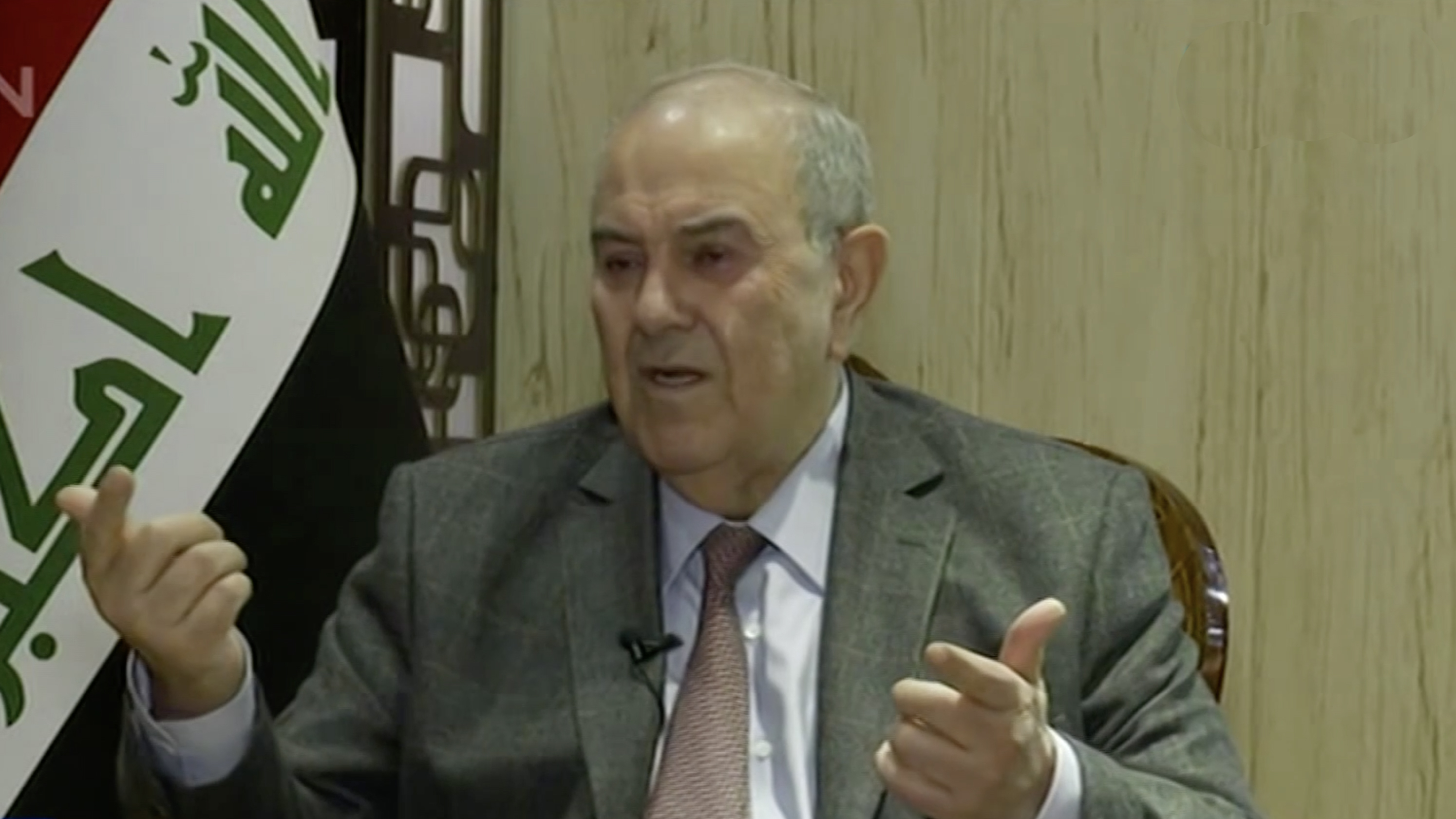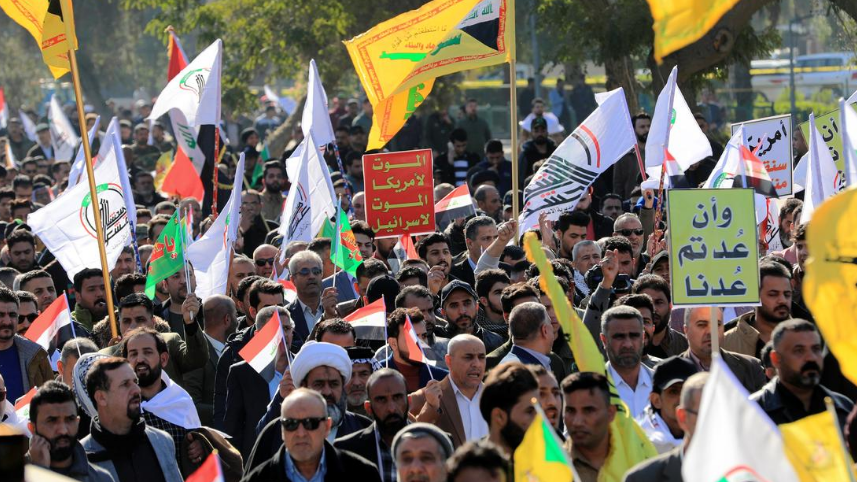02:41

Iraq has been in a state of chaos since the U.S.-led invasion in 2003. The longest period of relative peace in the country lasted less than three years. In an interview with CGTN, former Iraqi prime minister Ayad Allawi attributed the current turbulence in Iraq to U.S. occupation, saying it destroyed the social foundation.
Allawi, as the first prime minister in Iraq's transitional government from 2004 to 2005 and a strong influencer in the political arena, expressed deep concerns about the ongoing protests and attributed it to the failure of properly handling the long-existing social problems since the U.S. invaded the country 17 years ago.
"The issue of the isolation of people, such as the displaced and the refugees is rising in Iraq," he said, adding that poverty and illiteracy rates have gone up and the demands of the people are reasonable.
Read more:
Iraq's political and diplomatic situation
Iraqi protesters rally outside U.S. embassy in Baghdad, ambassador evacuated

People attend a funeral procession of Hashd al-Shaabi (paramilitary forces) members, who were killed by U.S. air strikes in Qaim district inside the Green zone in Baghdad, Iraq, December 31, 2019. /Reuters Photo
People attend a funeral procession of Hashd al-Shaabi (paramilitary forces) members, who were killed by U.S. air strikes in Qaim district inside the Green zone in Baghdad, Iraq, December 31, 2019. /Reuters Photo
Iraq has rich, high quality oil reserves and more than enough labor, but neither of these resources has been converted into economic or political dividends.
What caused today's situation, according to Allawi, is the U.S. occupation which destroyed the foundation of Iraqi society.
"(The U.S.) dismantling the army, the police, the institutions, de-Baathification, politicizing de-Baathification, not sending people who committed crimes to the courts, but politicizing de-Baathification... and then the occupation decided the fate of this country."
The current political system was established during Allawi's term as prime minister, but a lot was forced on the Iraqi people by the U.S. in the name of "supervision" and "advice."
Allawi sought unity and equality among different ethnic and religious groups, and explicitly stated that American democracy was premature for Iraq's social conditions. However, the U.S. occupation chose to form a sectarian system, which led to endless political battles and no benefits for the people.
"It wasn't organized well and was then in a vacuum. It was then without institutions to protect democracy. It's not like you push a button, and you become democratic. It's not right," said Allawi.
In 2005, the White House published a fact sheet claiming that it was "helping Iraqis build inclusive democratic institutions that will protect the interests of all the Iraqi people." By 2018, this system had failed so badly that fewer than 20 percent of citizens bothered to vote. This year, the protesting crowd in Tahrir Square appeared to be far more enthusiastic.
Speaking of the low turnout, Allawi said it was because they lost confidence. "If you speak to an Iraqi and he trusts you, he'd tell you democracy is a mockery. It's not true. What democracy is this? This is a show."
The former prime minister said that Iraqis are fed up with the "fake promises" made by the U.S., but he still hopes that Iraqi people will finally manage to take their own path.